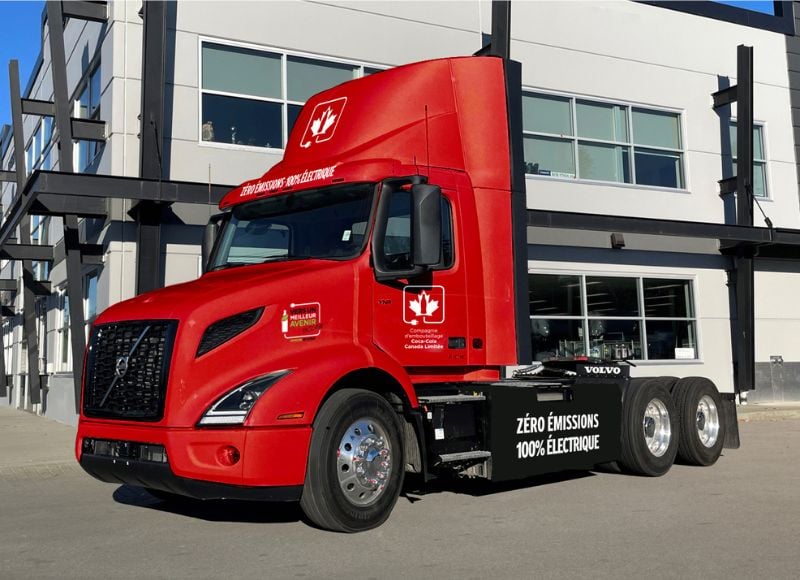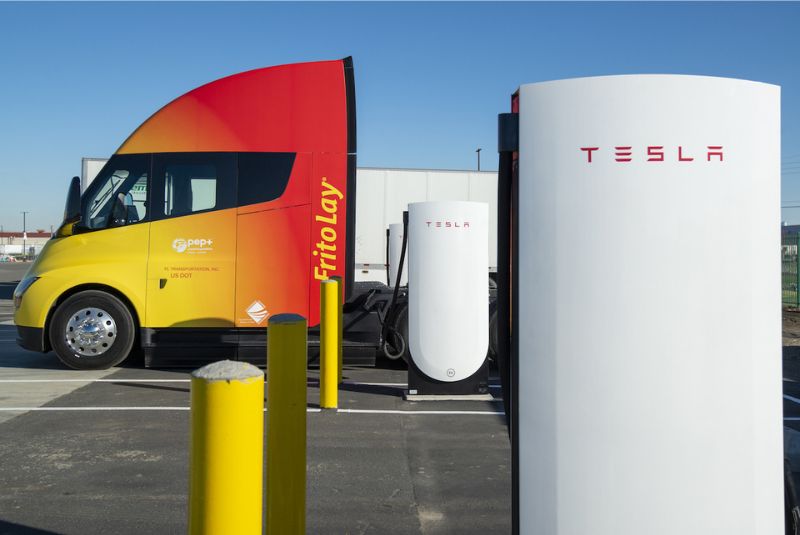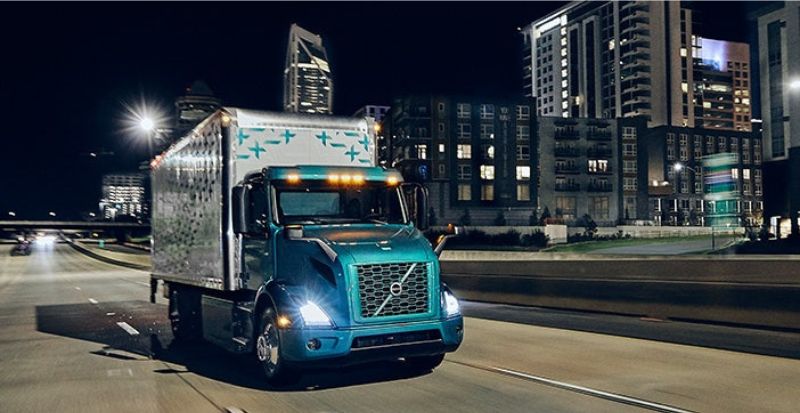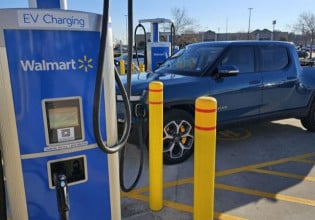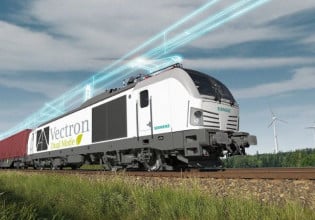Frito-Lay, Coke Drive EV Fleet Adoption
Two food and beverage giants, Frito-Lay and Coca-Cola, have unveiled plans to add more electric vehicles to their truck fleets this year.
As corporate electric vehicle adoption increases worldwide, more food and beverage brands are jumping in with plans to electrify their delivery networks. PepsiCo-owned Frito-Lay and a Coca-Cola bottling subsidiary in Canada both recently announced purchasing agreements to add electric trucks to their fleets.
Coca-Cola’s Canada Bottling Limited subsidiary recently purchased Volvo VNR Electric trucks for its delivery routes in the Montreal area. Image used courtesy of Volvo Trucks
Frito-Lay to Add 700 Electric Delivery Trucks in California
PepsiCo-owned Frito-Lay North America has revealed plans to add more than 700 electric delivery vehicles in southern California by the end of this year. The company is sourcing the new EVs from Schneider’s Freightliner eCascadia battery-electric truck lineup, making Frito-Lay the first customer to contract transport with eCascadia. The move comes as Frito-Lay is expected to cut emissions by more than 70% this year from its initial EV routes as it switches from diesel trucks to EVs.
The recent contract with Schneider supports PepsiCo’s goal of reaching net-zero emissions by 2040. The company’s move to deploy 700 EVs is expected to reduce its annual greenhouse gas (GHG) emissions by 7,052 metric tons.
Still, that’s a tiny slice of its overall carbon footprint: According to PepsiCo’s most recent GHG progress report (updated in November 2022), its GHG emissions in 2021 totaled 63 million metric tons. Third-party transportation and distribution currently account for 20% of its Scope 3 carbon emissions, behind packaging (25%) and agriculture (33%). The company also reported that fuel use accounts for 14% of its carbon footprint.
The recent deal with Schneider is the latest in a series of EV-focused moves: PepsiCo put its first 36 all-electric Tesla Semi trucks into production in December 2022, part of a 100-unit order across its snacks and beverage brands. Frito-Lay also ordered 41 Ford E-Transit vans last year as part of its electric fleet expansion in Texas.
Frito-Lay’s signature use case for its electrification push is its manufacturing plant in Modesto, California, which reached a 91% reduction in GHG emissions from direct fleet operations via EVs. The site is equipped with four Tesla 750 kilowatt (kW) charging stations, providing up to 400 miles of range per hour of charging.
In 2022, Frito-Lay added Tesla Semi trucks to its commercial fleet in California. Image used courtesy of Frito-Lay
Coca-Cola Pilots EV Expansion With Volvo Electric Trucks
Volvo Trucks North America announced that Coca-Cola Canada Bottling Limited would purchase six vehicles in its VNR Electric truck lineup as part of a pilot program in the Montreal area. Deliveries will be rolled out throughout the year, marking the first series of electric trucks in its fleet of 650 heavy-duty vehicles in the region.
According to Volvo’s announcement, the new fleet includes a six-battery configuration offering up to 275 miles on one charge, sufficient for the trucks’ daily round trips of 93 miles to/from Coca-Cola Canada Bottling’s Montreal distribution hub. The site will also install three 150 kW direct-current chargers with nine dispensers by June of this year.
Volvo’s VNR Electric Class 8 truck en route. Image used courtesy of Volvo Trucks
The deal will contribute to Coke Canada Bottling’s larger goal of reducing its direct-source and supplied-energy emissions by 46.2% before 2030. The company is already working to improve its efficiency, add more light-duty electric service vehicles to its fleet, and increase its use of alternative B20 biofuels. Those programs have cut more than 1,500 tonnes of carbon dioxide to date. According to its 2022 sustainability report, Coke Canada Bottling has reduced fleet emissions by nearly 12% since 2019.
More broadly, Coke Canada Bottling’s parent—Georgia-headquartered Coca-Cola Company—is targeting a 25% reduction in emissions by 2030 compared to 2015 levels. According to its most recent business and ESG report, the beverage giant’s entire fleet consumed 1.10 billion liters of diesel-equivalent fuel in 2021, up from 1.01 billion in 2020. Overall, its GHG emissions totaled 5.49 million metric tonnes.


